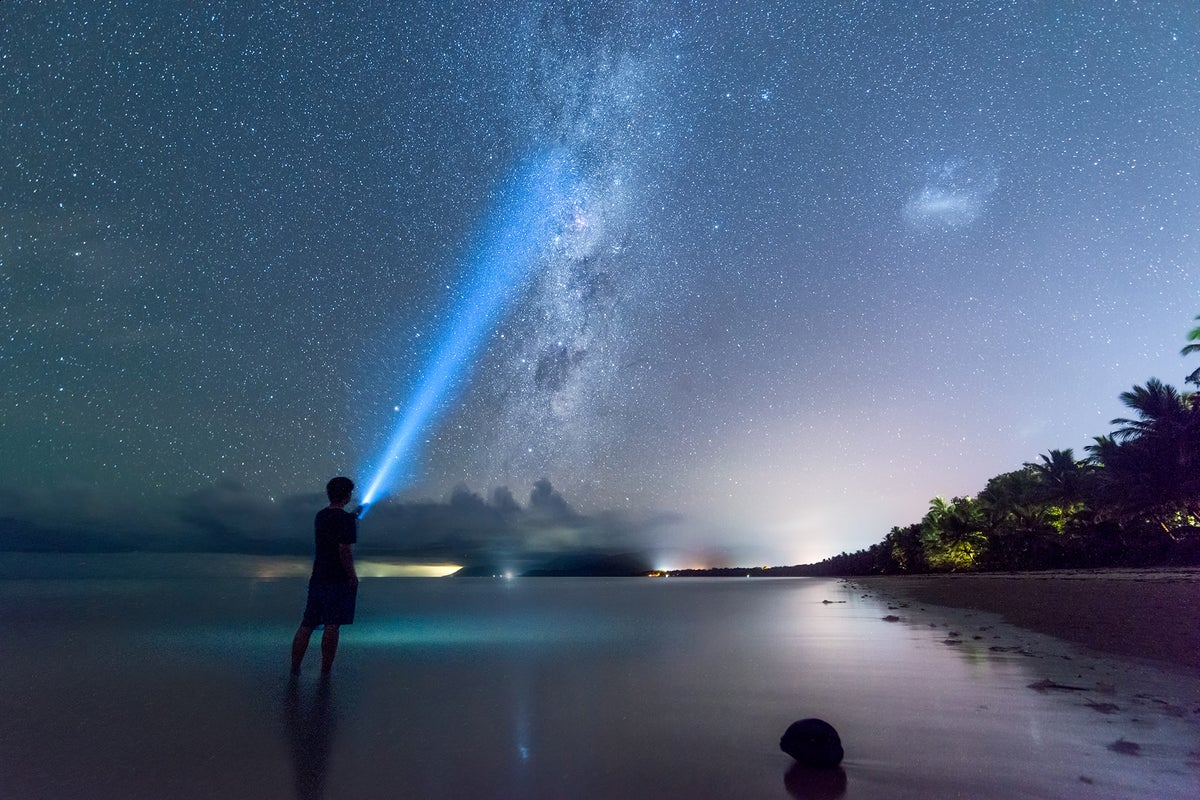One of astronomy’s lovelier aphorisms, popularized by astronomer Carl Sagan, is that there are more stars in the universe than grains of sand on all the beaches on Earth. I’ve heard this dictum many times over the years, expressed in many ways. But like many such brain-freeze-inducing sayings, it’s worth asking a very basic question: Is it true?
Stars as hefty as or heftier than the sun only make up about 10 percent of all stars, so out there in the universe there are closer to 10 stars for every one solar mass. We need to multiply that galactic one million solar masses by 10, which gives a result of 10 million stars per galaxy on average.
Therefore we can estimate the total number of stars as 10 million x 2 trillion = 20 million trillion = 20 quintillion, or 2 x 1019, stars. The cosmos is not lacking in stars.
But how does that compare with sand? It’s time to turn to estimates that are decidedly more down-to-earth.
How much sand is in a cubic meter? That depends on the size of the grain of sand, which ranges from less than 0.1 millimeter up to about 2 mm. Let’s call it 1 mm on average. A cubic meter would then contain 1,000 x 1,000 x 1,000 = 1 billion grains of sand. To find the total volume of sand, we can calculate that 50 meters wide x 10 meters deep x 750 million meters long = 375 billion cubic meters. If we go with a billion grains of sand per cubic meter, that means there are 375 billion x 1 billion = 375 quintillion grains. Call it an even 400—we’re being rough here—so that’s 4 x 1020 grains of sand.
Huh. That’s about 20 times as many stars as there are in the observable universe, in fact.
Scientific American
My assumptions were pretty rough, however, and that could change the numbers a lot.
o.O
Also, 2016 numbers for stars in the quintillions don’t match current (broad) numbers in the septillions according to a quick search to see what the JWST era has come up with.
Why the qualifier that the star has to be as big as our sun? That wasn’t part of the original claim. Anyways, of course it is true. Space is infinite, which means infinite stars.
Q: How do you know space is infinite?
A: How do you know it is not ?
Conclusion : Space is infinitely unknown !
But yes ,great to see folk not only questioning these authors and articles but actually fact checking them as well ,rather than taking what is written in any given publication at type face value, and the whole idea of this page .
I know very little about outer space. But a lot of scientists that I respect say it’s probably infinite, so I believe them.
750 million meters
Where did this come from?



